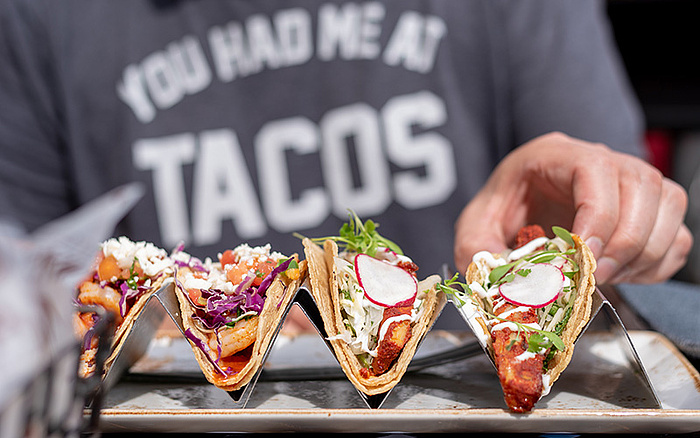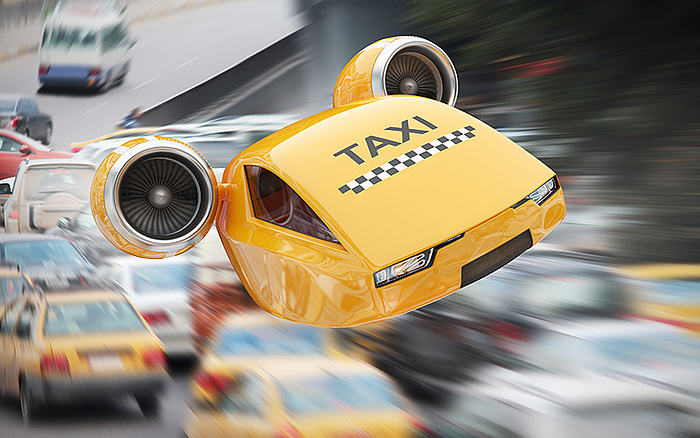
Bye-bye, birdie: Intellectual Property breakups and takeoffs
Most of the time, the Intellectual Property (IP) cycle progresses slowly but systematically. After a court or IP office action is filed, one can expect it to be eventually resolved or dropped; a patent application will either mature into a grant or it will not; there is a natural, if ponderous, rhythm to the industry. Our IP news roundup for July 2023 shows this inherent order in action and how the usual expectations can sometimes be defied.
The way the tortilla crumbles
In May of this year, we brought you the story of a trademark rumble over the rights to "Taco Tuesday." Taco Bell was petitioning the United States Patent and Trademark Office (USPTO) for the cancellation of various registrations of the phrase, arguing it had become a generic expression of a routine food-related event. Now, the matter has been settled in 49 of 50 U.S. states.
On July 18, appropriately enough, a Tuesday, Taco John's voluntarily relinquished the contested trademark rights it held across most of the country. In a statement released the same day, Taco John's CEO Jim Creel could not help but add a little spice to the news that his company was effectively backing down before its larger rival. "Let's see if our friends at Taco Bell are willing to 'liberate' themselves from their army of lawyers by giving back to restaurant families instead."

It is tempting to see an IP dispute as a contest of who has more (expensive) lawyers, but ultimately it is the merit of the case that is being judged. So no matter how big the business, picking one's battles carefully is essential. With this task, expert legal counsel really pays off.
Referencing Taco John's pledge to donate $100 USD to the charity Children of Restaurant Employees (CORE) for every location operated, Creel garnished his remarks by challenging his "litigious competitors," particularly Taco Bell, to match the move. "[T]hat's about $720,000 – which is less than they'd have to spend in a legal battle for the mark. We also invite Del Taco, Taco Bueno, Taco Cabana, Jack In The Box and mom and pop taco shops across the country that intend to use Taco Tuesday in the future to join us in this movement to support working families and donate to CORE."
Giving up long-held trademark rights under these circumstances was clearly a hard decision for Taco John's to swallow, so much so that even basketball player and prolific IP applicant LeBron James did not out-dribble Creel's disappointment.
With this abandonment, Gregory's Restaurant & Bar in Somers Point, New Jersey, is the sole owner of a U.S. trademark for the words "Taco Tuesday" for food services. Quoted by PhillyVoice, co-owner Gregory Gregory stated that the business was going to resist Taco Bell's revocation action for "as long as it's financially feasible." He explained his continued defiance by pointing to the crux of the IP system: "Because it stops everybody else from using our trademark to encourage their business."
Having lost its only co-defender on the USPTO register, Gregory's Restaurant & Bar just might be biting off more than it can chew.
X marks the rebrand
Since Facebook became Meta to the sound of amused skepticism in October 2021, abrupt rebrands by large technology companies have lost something of their shock value. But Twitter owner Elon Musk has not allowed an increasingly au fait consumer base to dampen his disruptive ambitions. True to brazen form, he announced on July 23 that the messaging platform's name was being axed and its famous blue bird going the way of the dodo less than one year after shelling out $44 billion USD to take the company private.

"Why did Twitter cross the road? Because X is a cross." More to the point, an IP refresh can help define a brand's heading after a change in ownership. While not without risk – or cost – this strategy can shed legacy issues and allow new management to put its stamp on a business.
For the time being, twitter.com can be accessed via X.com, to the delight of typosquatters the virtual world over. Meanwhile, the blue bird logo has been replaced with a (somewhat ironically) modest letter X on a black background. Given that the existing trademarks and domain names likely contained no small proportion of the company's true value – such as it was – their sudden replacement with a shorthand for nondescriptness has caused some bemusement. It is, however, not as placeholder as might appear at first glance since "X" has been a recurring theme for Musk's ventures, from SpaceX to the recently unveiled artificial intelligence project, xAI. And so, X.com and its stark white letter are very much in keeping with the wider brand ecosystem maintained by one of the richest men in the world.
Whether this extraordinary rebrand will pay dividends as part of an expanded range of digital services, only time and money will tell.
Patents lift off the page
Using patents to secure funding and section off markets are common IP practices for organizations at the forefront of technology but, on their own, are not enough to stir public imagination and stimulate young minds. In a similar vein, the patent news cycle can sometimes alienate those outside the industry rather than inspire. Thus, it is a refreshing change of pace to witness newly patented inventions find themselves expressed through the very industrial applicability they had to prove in the first place.
Enter Brazilian aircraft manufacturer Embraer and its subsidiary, Eve Air Mobility. On July 20, the companies announced that they would be opening an electric air taxi factory in the state of São Paulo, Brazil.

Waving down a flying taxi would take more than a pair of marshaling wands and a working knowledge of semaphore. But while apps will make hailing easy, much more down-to-earth issues concerning flight paths, safety and business viability need to be addressed for the technology to be widely adopted.
The electric vertical takeoff and landing (eVTOL) aircraft are set the rise above the crowd where other companies have been embroiled in expensive and protracted patent disputes. One reason for this success could be that Embraer has a longstanding history of independent research and development and has been vigorously active of late in the field of electric- and hybrid-propulsion aircraft.
By pursuing technologies developed in-house, particularly those concerning VTOL craft, thrust generation and energy recovery, Embraer and Eve Air Mobility have avoided much of the industry turbulence that has kept the "flying taxi" concept grounded for so long. Yet there are still practical challenges remaining. For one, the joint statement stressed the trials of designing and realizing fabrication methods for entirely novel products. Hence a 2022 partnership with Porsche Consulting "to define Eve's eVTOL global manufacturing, supply chain and logistics macro strategy."
The choice of location, at the same time, could prove most opportune. With a population of over 12 million and the largest fleet of private helicopters of any city, nearby São Paulo is perhaps the ideal litmus test for the feasibility of an aerial taxi concept. If it can fly there, it can fly anywhere.
One does not need a crystal ball for a glimpse at technologies to come, only a sharp eye trained on the latest patents. So to all you IP spotters out there, keep watching the skies!
Filed in




